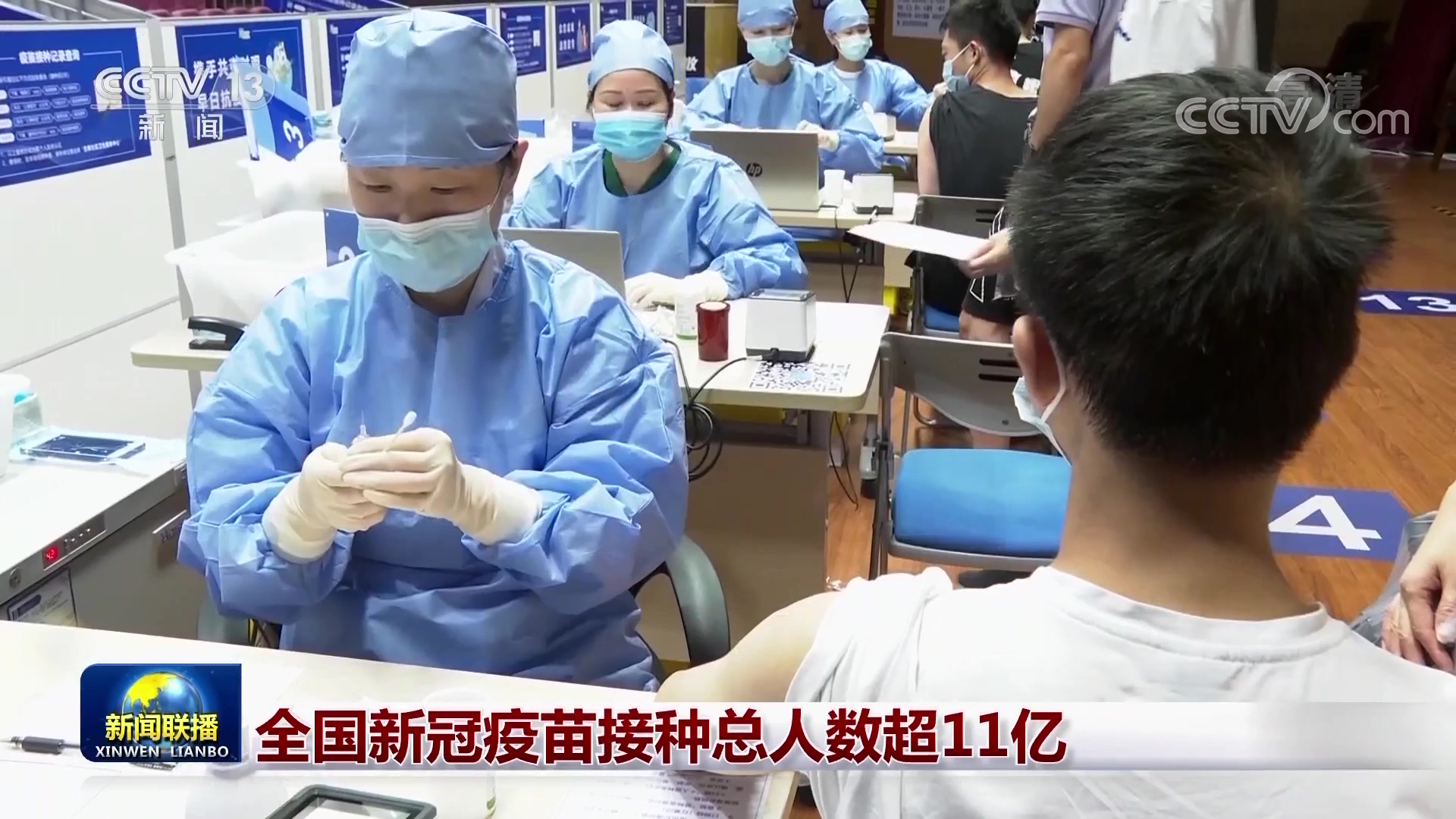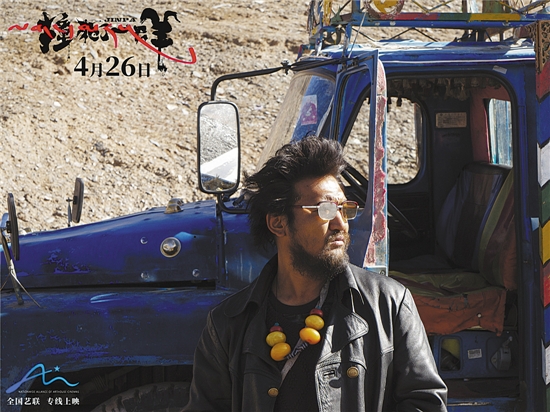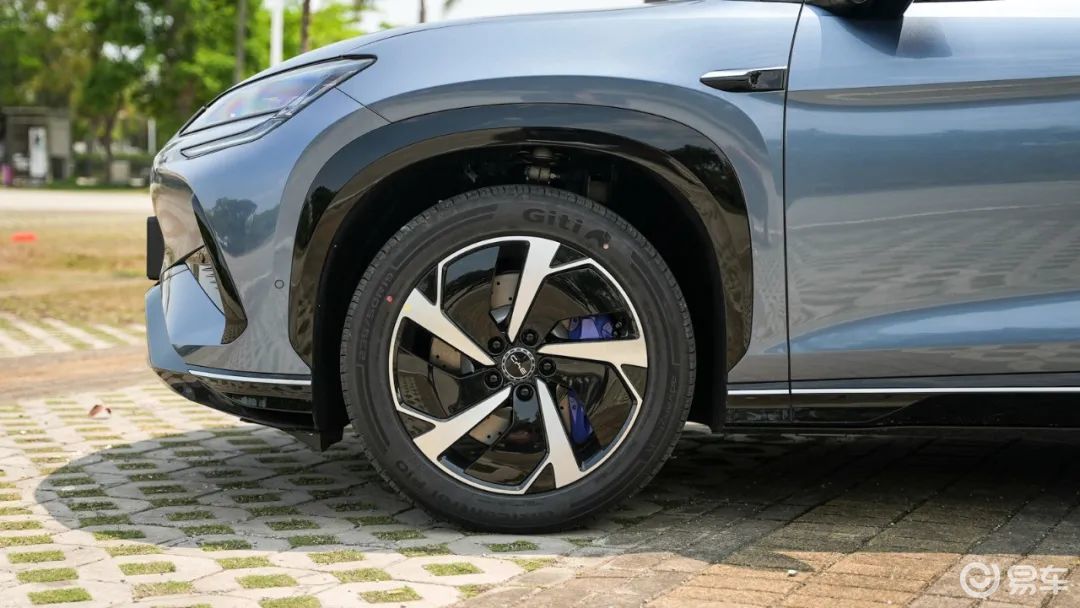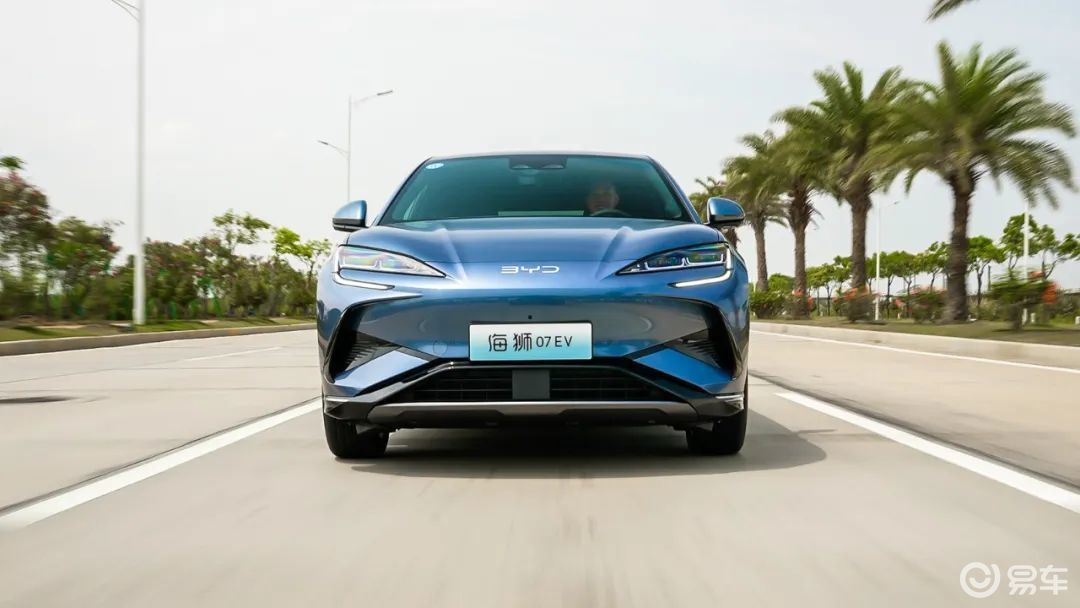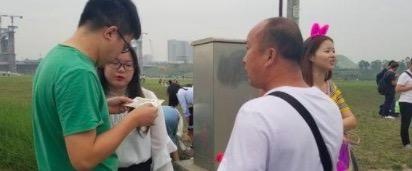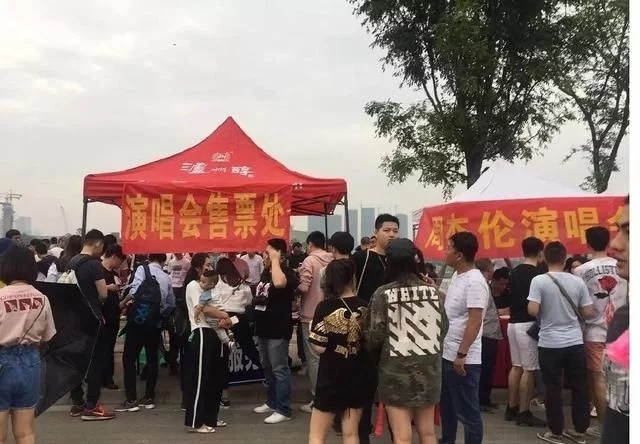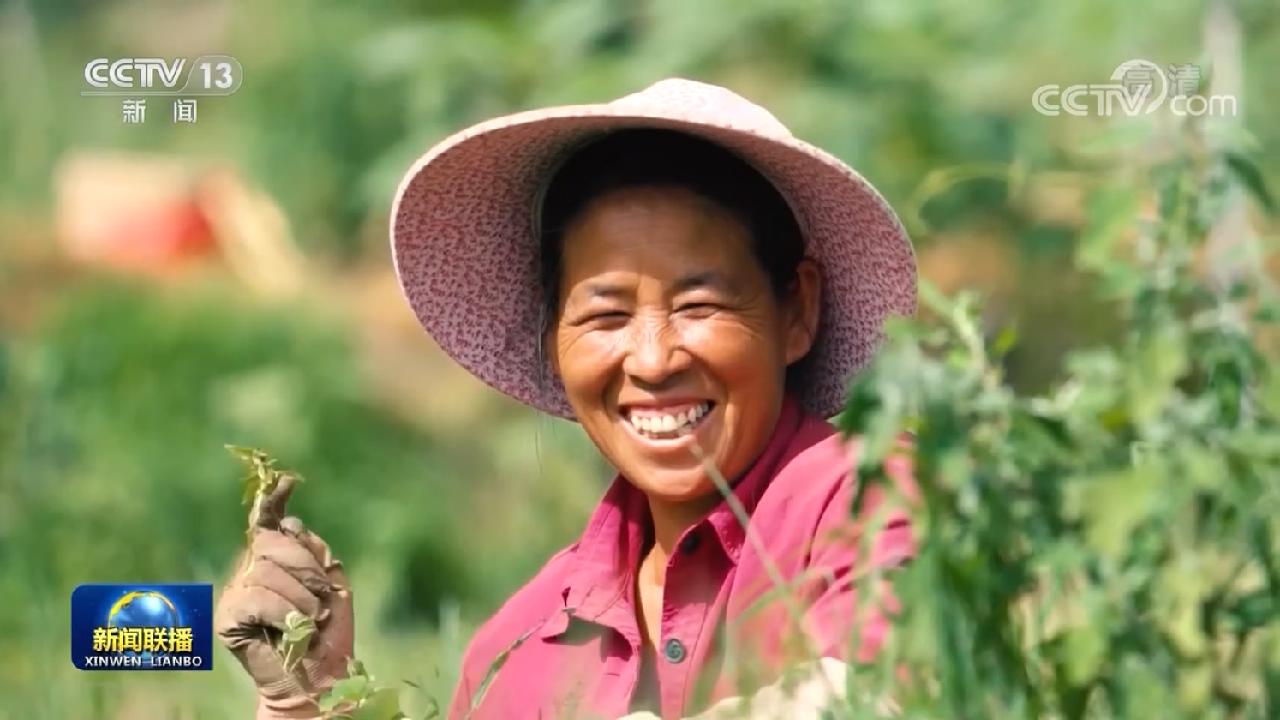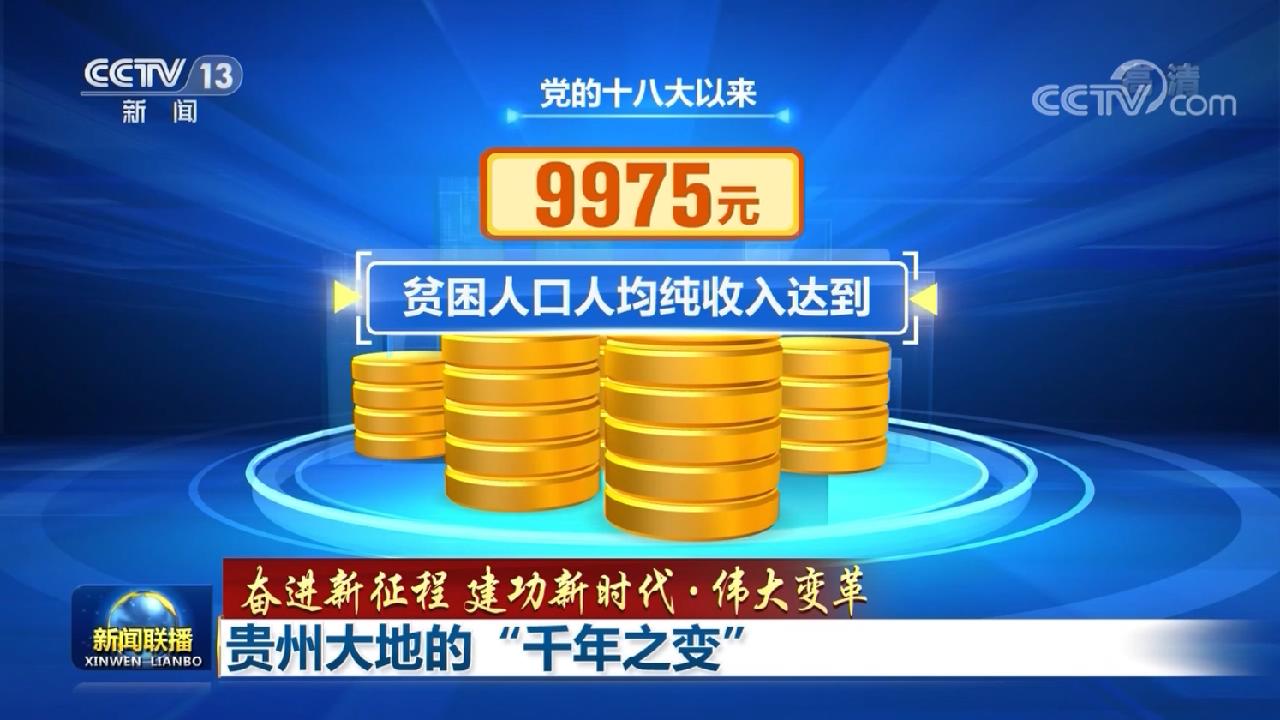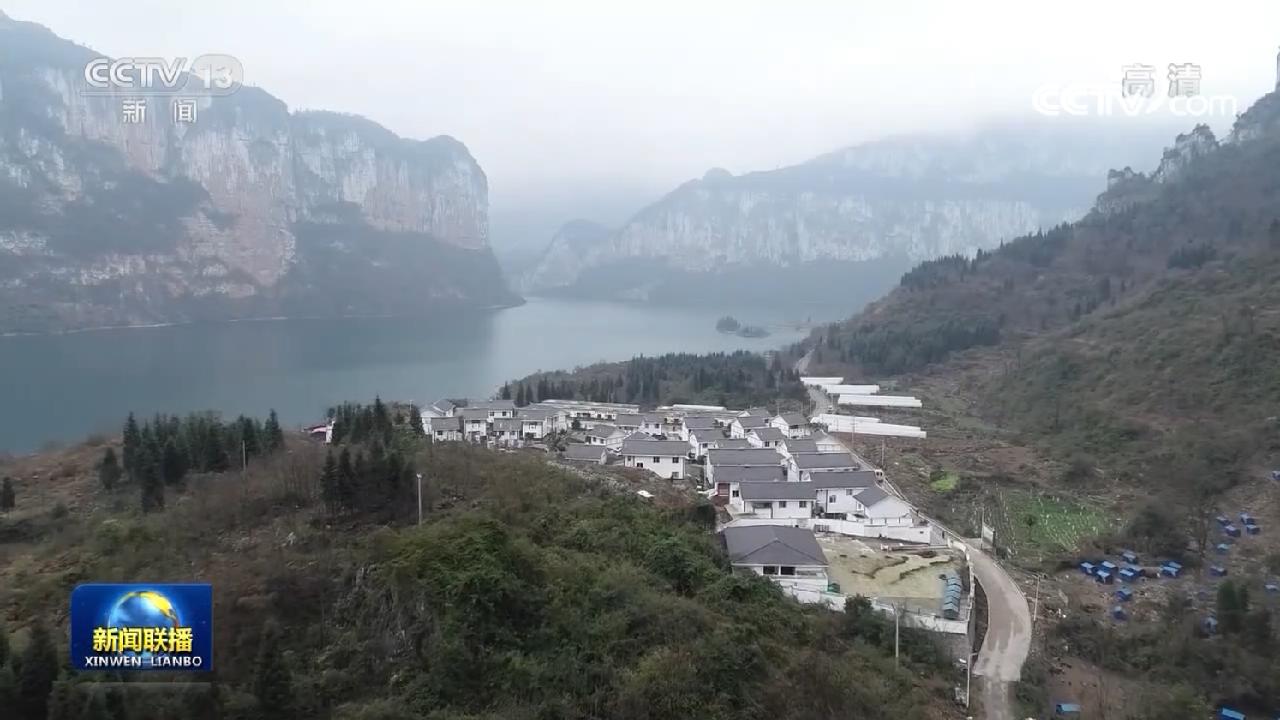CCTV News:In spring and March, spring is warm. On March 16th, "News Network" reported the new progress and new trends in China’s consumer market, civil aviation transportation, national new district construction, key projects, etc. At the same time, combined with the recent good news from other fields, it showed that China’s economy has strength, confidence, advantages, and more sustainable development potential. People are diligent and spring comes early. All walks of life have firm confidence, work hard, and strive to turn their development potential into development strength. The future of China’s economy can be expected.
[Lay a good policy of "combination boxing" to promote high-quality development, be stable and far-reaching]
China has issued an action plan to promote the high-quality construction of national new districts.
The reporter learned from the National Development and Reform Commission on March 16th that the Action Plan for Promoting High-quality Construction of National New District was recently released, which clarified the key tasks to be concentrated in the next three years in terms of enhancing the scientific and technological competitiveness of the new district. At present, there are 19 national new districts, including Shanghai Pudong, Hebei xiong’an new area and Tianjin Binhai, Chongqing Liangjiang and Zhejiang Zhoushan Islands.

Beijing city sub-center will build a national green development demonstration zone.
The reporter learned from the National Development and Reform Commission that the National Development and Reform Commission and the Beijing Municipal People’s Government recently issued the "Implementation Plan for the Construction of a National Green Development Demonstration Zone in Beijing City Sub-center" (hereinafter referred to as the "Implementation Plan"), clearly focusing on three key areas of construction, transportation and industry, strengthening the support of energy, ecology and culture, coordinating industrial restructuring, pollution control, ecological protection, coping with climate change, and promoting carbon reduction and pollution reduction in a coordinated manner.
The "Implementation Plan" puts forward a series of goals: by 2025, the endogenous driving force for the green development of Beijing city sub-centers will be significantly enhanced, the energy consumption per unit area GDP and the carbon dioxide emission per unit area GDP will reach the national leading level, the proportion of local renewable energy in energy consumption will reach about 20%, the forest coverage rate will reach 34.6%, and the proportion of days with excellent air quality will reach over 78%; By 2035, the modern Beijing city sub-center with green background will be basically completed.
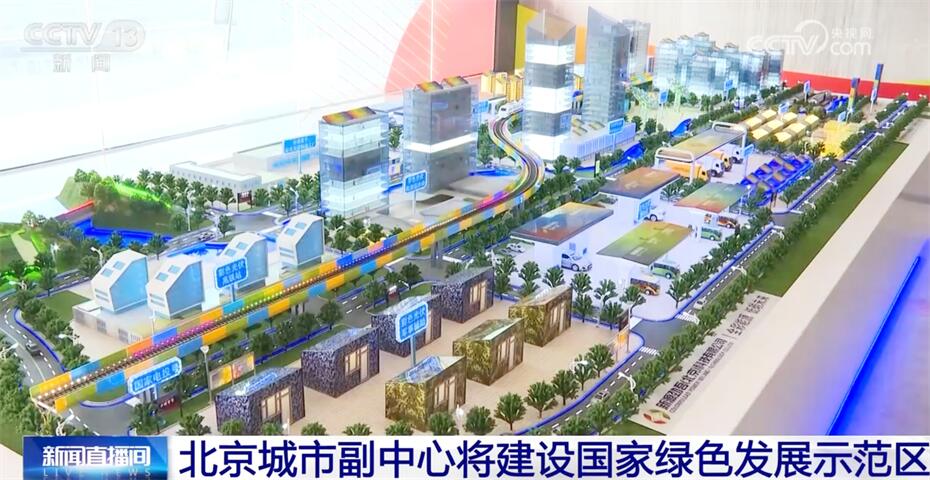
In order to ensure the realization of the goal, the Implementation Plan puts forward a number of specific tasks from seven aspects: building a smart and comfortable green building demonstration, building a convenient and accessible green transportation demonstration, building an innovation-driven green industry demonstration, building a safe and efficient green energy demonstration, building a fresh and beautiful green ecological demonstration, building a low-carbon and environmentally-friendly green cultural demonstration, and strengthening organization and implementation.

In addition, in order to further strengthen the goal guidance, the "Implementation Plan" set 18 quantitative indicators such as the proportion of added value of green industry in 2025, the proportion of star-rated green building area and the annual average concentration of fine particles in three aspects: green production, green life and ecological environment in the demonstration area, releasing a strong signal of high-quality green and low-carbon development.
The Ministry of Civil Affairs promulgated the Measures for the Implementation of the Regulations on the Administration of Geographical Names.
The Measures for the Implementation of the Regulations on the Administration of Geographical Names formulated by the Ministry of Civil Affairs (hereinafter referred to as the Measures) was recently announced. The Measures stipulated the compilation content, organization, implementation and change procedures of the geographical name plan, and clarified that the naming and renaming of geographical names should be submitted through the National Geographical Names Information Database and announced to the public."measures"It will be implemented on May 1, 2024.
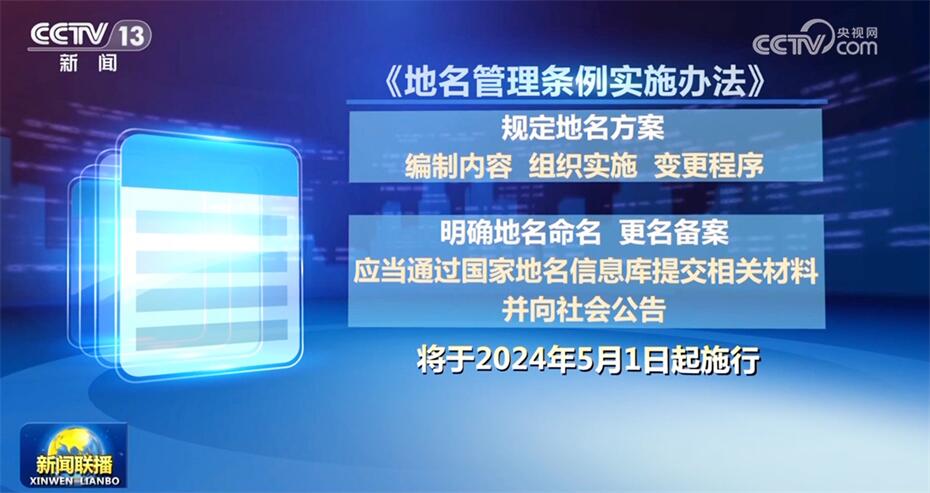
[The foreign exchange market is improving and the cross-border capital flow is stabilizing]
The State Administration of Foreign Exchange announced the cross-border capital flow in China on March 15th. According to the latest data, in February, the cross-border revenue and expenditure surplus of Chinese enterprises, individuals and other non-banking sectors was $12.1 billion, an increase of $6.6 billion from the previous month. The foreign exchange market is operating steadily, cross-border capital flows are more stable, and foreign exchange transactions are rational and orderly.
The relevant person in charge of the State Administration of Foreign Exchange said that the net inflow of funds under trade in goods and securities investment remained relatively high. Supported by economic fundamentals, policies and market conditions, China’s foreign exchange market is expected to continue to operate smoothly in the future.
[Trade-in the old and optimize the payment environment. China’s consumer market releases great potential]
Trade-in of consumer goods for new opportunities in the market
With the upgrading of consumption and the improvement of living standards, many people choose to trade in old household appliances and furniture. The increasingly perfect policy system not only enables resources to be recycled, but also activates new consumption potential.
Recently, Zhou Hui, who lives in Shanghai, wants to replace the disinfection cabinet that is not commonly used at home with a dishwasher. It didn’t take long to place an order and make an appointment on the mobile phone, and the home appliance sales staff came to the door to serve. It is very convenient for Zhou Hui to install and debug new home appliances while removing old ones.

Since the beginning of this year, the country has accelerated the development of the "replacement+recycling" logistics system and new model. In Haidian, Beijing, residents can put large pieces of waste furniture into a specially set transfer station near the community, and then the government will transport them to the sorting center for subsequent treatment and recycling. Data from major e-commerce platforms show that since the beginning of this year, the popularity of home trade-in services involving mattresses, sofas and smart toilets has increased significantly, becoming a new consumption highlight.
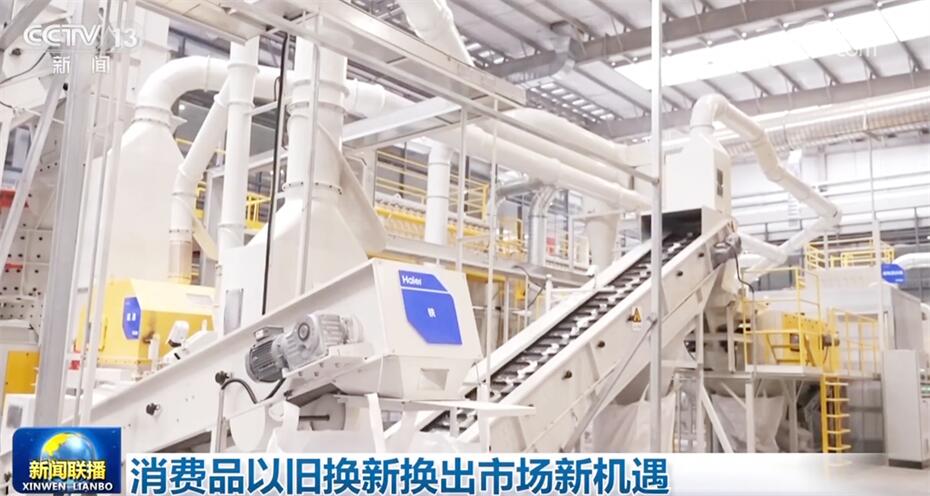
The trade-in policy also brings new opportunities for the development of the resource recycling industry. In Qingdao, Shandong Province, this home appliance recycling interconnection factory, two intelligent refrigerator disassembly production lines that have just been put into production are running at full capacity. The person in charge of the enterprise told the reporter that the factory can recycle more than 20,000 tons of steel every year through the recycling and dismantling of waste household appliances, which can be used to manufacture about 1 million small household appliance compressors.
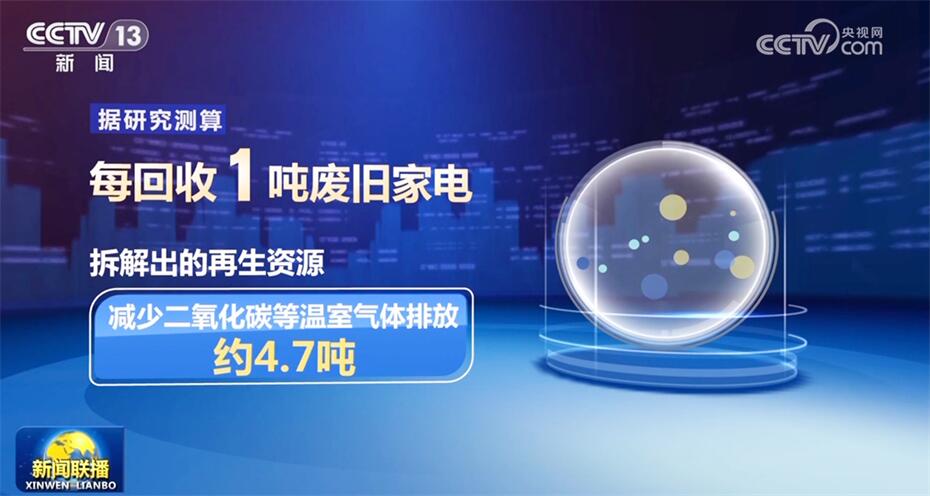
Up to now, the number of household appliances such as refrigerators, washing machines and air conditioners in China has exceeded 3 billion. Every year, 100 million to 120 million used household appliances are eliminated. In 2023, the total amount of recycled waste household appliances in China reached 4.5 million tons. According to research and calculation, for every ton of recycled waste household appliances, the dismantled renewable resources can reduce greenhouse gas emissions such as carbon dioxide by about 4.7 tons. With the launch of the new round of trade-in policy this year, the upgrading of automobiles, household appliances and other products will be promoted, which is expected to release the market space of one trillion yuan. With the manufacturing of durable consumer goods such as household appliances and furniture, recycling production, supply and marketing, upstream and downstream synergy and comprehensive policy, more consumers and the whole society will benefit from it.
China UnionPay will invest 3 billion yuan to optimize the offline payment acceptance environment.
On March 15th, China UnionPay officially released "Splendid Action 2024" to optimize payment services in Shanghai, and launched a number of measures to promote substantial optimization and improvement of payment services as soon as possible.
In this operation, China UnionPay will invest 3 billion yuan in the renovation of acceptance terminals in key cities and key scenes, and at the same time incite all parties in the payment industry to jointly invest resources, which will cover 26 high-frequency payment scenarios in 8 categories in 41 key cities across the country. By providing comprehensive payment solutions such as credit card swiping, code scanning, mobile phone payment and ATM cash withdrawal, mobile payment, bank cards, cash and other payment methods will be promoted to develop in parallel and complement each other. On the same day, China UnionPay also released 29 business achievements, covering overseas card issuance, e-wallet and domestic acceptance.

Hu Hao Zhong, executive vice president of China UnionPay, said: "On the one hand, we will improve the acceptance environment of bank cards and post signs, including the training and publicity of our personnel. At the same time, we also unite the common resources of all parties in the industry to promote the convenience and inclusiveness of payment. "
[Project construction "spring tide" started to develop "like a rainbow"]
Chongqing: Nanzhushan Tunnel, the control project of Chongqing-Hunan high-speed railway, runs through.
On March 16th, the 10794-meter-long Chongqing-Hunan high-speed rail control project — — Nanzhushan tunnel runs smoothly.
Nanzhushan Tunnel is located in Nanzhushan Town, Nanchuan District. The tunnel passes through the karst geological fault zone of Jinfo Mountain, with dense karst caves and landslides. The construction difficulty and safety risk are rare in China.
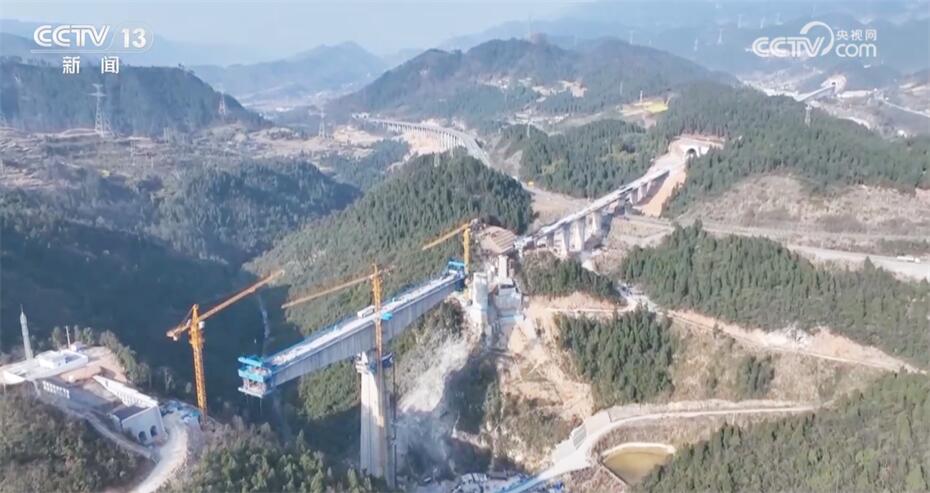
The Chongqing-Qianjiang section of Chongqing-Hunan high-speed railway is an important part of the Xiamen-Chongqing passage in the "eight vertical and eight horizontal" high-speed railway network planned by the state, with a design speed of 350 kilometers per hour. After it is completed and opened to traffic, it will significantly strengthen the rapid connection between the twin-city economic circle in Chengdu-Chongqing area and the urban agglomeration in the middle reaches of the Yangtze River and the western side of the Taiwan Strait, and realize the one-hour high-speed rail connection between the main metropolitan area of Chongqing and the urban agglomeration in Wuling Mountain area in southeast Chongqing, which has an important role in coordinating the development of Chongqing and promoting the transformation of tourism resources along the route into economic
Construction of Fuyimen Highway-Railway Dual-purpose Bridge on Yongzhou Railway officially started.
On March 16th, the Fuzhimen Highway-Railway Dual-purpose Bridge of Yongzhou Railway was officially started. The 76.4-kilometer-long Ningbo-Zhoushan Railway connects Ningbo and Zhoushan, Zhejiang Province, and it is expected to be open to traffic in 2028. By then, Zhoushan, the only prefecture-level city in the Yangtze River Delta that is currently closed to railways, will join the national railway network.

The post-earthquake recovery and reconstruction project in Jishishan, Gansu Province started in full swing.
On March 15th, the post-earthquake recovery and reconstruction project in Jishishan, Gansu started in an all-round way, including residential housing, infrastructure, industrial revitalization, disaster prevention and mitigation, etc. There are 374 post-disaster reconstruction projects with a planned total investment of 17.48 billion yuan, and the task of recovery and reconstruction will be fully completed in 2026.
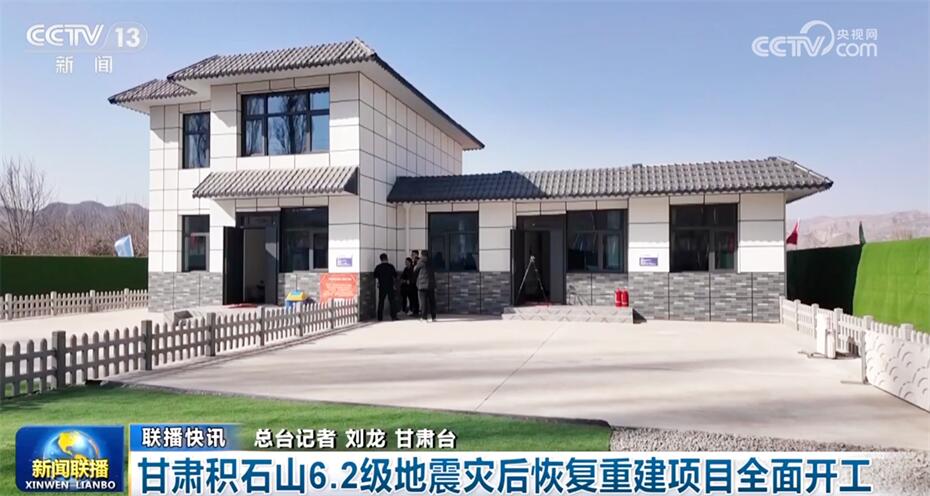
[The overall scale has reached a new high, and the "flowing China" is full of vitality and kinetic energy]
In February, China’s civil aviation transportation production scale reached a record high.
The reporter learned from the Civil Aviation Administration of China that in February, the total transportation turnover of civil aviation was 11.64 billion tons kilometers, up 46.8% year-on-year, and the overall transportation scale of the industry reached a record high.
In 2024, civil aviation transportation production started well. The data shows that in February, the transportation scale of the domestic market increased by 30.5% year-on-year; The transportation scale in the international market increased by 108.6% year-on-year, surpassing the level of the same period in 2019 for the first time, and the growth rate was 12.1 percentage points higher than that in January.
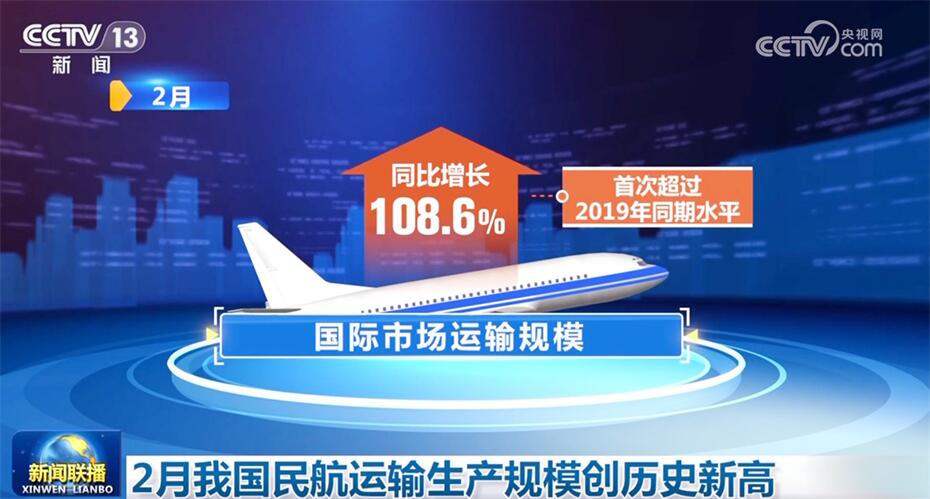
In terms of passenger transport, the whole industry completed 62.478 million passenger trips, up 44.6% year-on-year, with an average daily passenger trip of 2.154 million. Among them, the domestic passenger transport scale increased by 35.5% year-on-year; The scale of international passenger transport increased by 593.4% year-on-year. The daily utilization rate of passenger aircraft reached 9.8 hours, and the passenger load factor of regular flights reached 85%, an increase of 5.4 percentage points from the previous month.
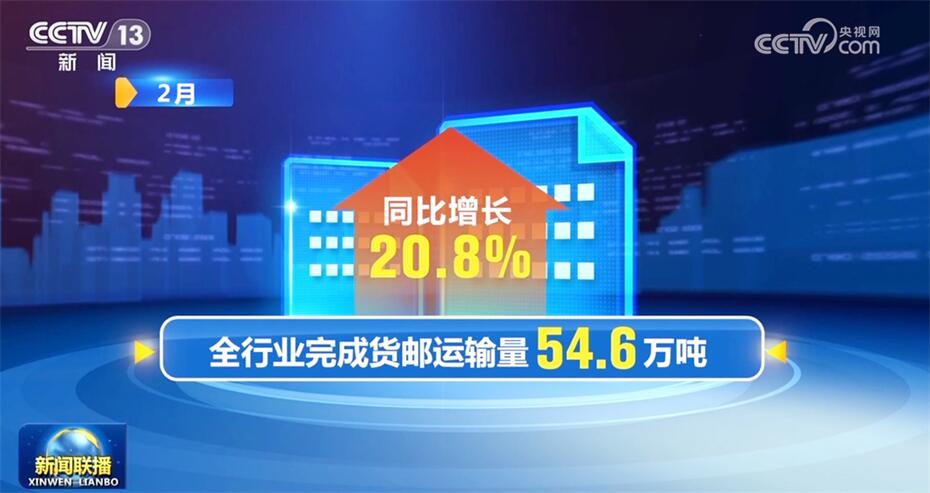
In terms of freight transportation, in February, the whole industry completed 546,000 tons of cargo and mail transportation, a year-on-year increase of 20.8%. Among them, the domestic and international freight scale increased by 20.5% and 21.3% respectively. 1— In February, the freight and postal transport volume reached the highest value in the first two months of the previous year.
Guangxi: The first sulfuric acid tank container train leaves.
On March 15th, a tank container train loaded with 1,200 tons of sulfuric acid left Fangchenggang Station in Guangxi for Zhongyi Village Station in Kunming, Yunnan, which was also the first tank container train in China. The newly-developed 20-foot 35-ton sulfuric acid tank container was put into use for the first time by the railway department, which can effectively prevent sulfuric acid from spilling, and at the same time, it can adapt to various modes of transportation, reduce logistics costs and reduce transportation risks. Previously, sulfuric acid production enterprises in Fangchenggang mainly transported sulfuric acid by car and sold it to other places.
International intermodal passenger trains between Hohhot and Ulaanbaatar resumed operation.
On March 15th, with the 4652 train leaving Hohhot Station for Ulaanbaatar, the capital of Mongolia, the international combined passenger train between the two places resumed operation, and the train departs from Hohhot and Ulaanbaatar in both directions every Monday and Friday.
[Don’t miss the farming season, don’t miss the spring ploughing, it’s the right time]
Pingluo, Ningxia: 54,000 mu of high-standard farmland construction project has been stepped up.
In the past few days, in the construction site of 54,000 mu of high-standard farmland in Pingluo County, Shizuishan City, Ningxia, workers are working hard to promote the construction progress of the project, laying the foundation for the next planting of crops such as wheat and corn.
At the construction site of high-standard farmland in Pingluo County, Ningxia, machinery roared. At present, more than 70% of the 54,000 mu high-standard farmland construction project has been completed.

Pingluo County is located along the Yellow River in the northern part of Ningxia. Due to the shallow groundwater level and serious salinization of land, the local high-standard farmland construction is taken as a breakthrough, and the mode of "pipeline water delivery+pipe drainage" is implemented to improve the quality of cultivated land.
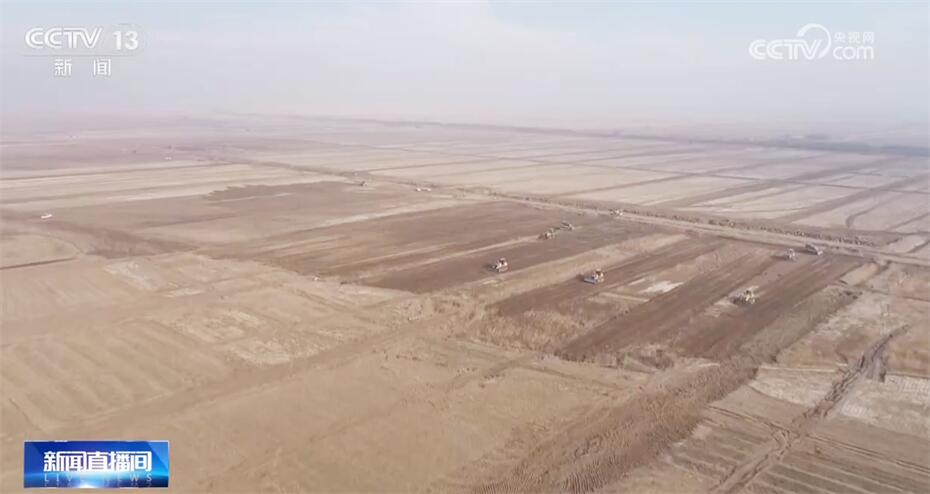
According to the reporter, the high-standard farmland construction will be completed by the end of April.
Guangxi: spring ploughing and preparing for ploughing is not a mistake at that time, and it is not a mistake in spring.
At present, Guangxi is carrying out spring ploughing for rice production. All localities actively provide agricultural resources guarantee and technical guidance for agricultural production to ensure the smooth development of spring ploughing production.
In the past two days, in a green and efficient demonstration base in Pingnan, Guangxi, green seedlings were neatly arranged in rice fields with the rumble of machinery. Local promotion of rice precision direct seeding technology, drone direct seeding technology, saving costs and increasing 110 yuan per mu. At the same time, give full play to the technical and equipment advantages of agricultural machinery service organizations such as large agricultural machinery households and agricultural machinery cooperatives, and carry out rice production in an orderly manner.

At present, 750,000 agricultural machinery in Guangxi have been repaired and maintained, and 34,900 mechanics and repairmen have been trained. It is estimated that the number of agricultural machinery and tools put into agricultural production in spring will exceed 1.7 million. At the same time, we will promote the production of spring ploughing materials to speed up the entry into villages and households, and mobilize the agricultural supply and marketing wholesale enterprises in the whole region to reserve spring ploughing materials in advance. Up to now, Guangxi has prepared 19,466,500 kilograms of early rice seeds for spring ploughing, accounting for 87.68% of the total consumption, and 8,596,600 kilograms of hybrid seeds for spring corn, accounting for 90.40% of the total consumption. 2,317,400 tons of nitrogen, phosphorus and potassium fertilizer, 20,500 tons of pesticides and 17,700 tons of agricultural film have been prepared, and the reserves of seeds and agricultural materials are over 80%. The reserves of spring ploughing materials are sufficient and the prices are stable.
Pengshui, Chongqing: Excellent Varieties Help Spring Farming to Ensure Agricultural Resources.
In Pengshui, Chongqing, the local government actively ensured agricultural resources, introduced excellent varieties from various channels, and delivered seeds to the doorstep to help villagers increase production and income.
In Yingxiong Village, Luming Literature Township, Pengshui County, villager Zhou Linlu came to the village committee to collect corn seeds. She told reporters that this is an excellent brand introduced and distributed by the local agricultural department, which is not only of good quality, high yield, but also cheap.

It is understood that this year, the agricultural and rural departments of Pengshui County have prepared more than 300 tons of "two miscellaneous" varieties of corn and rice according to the altitude and climate characteristics of different towns and villages.
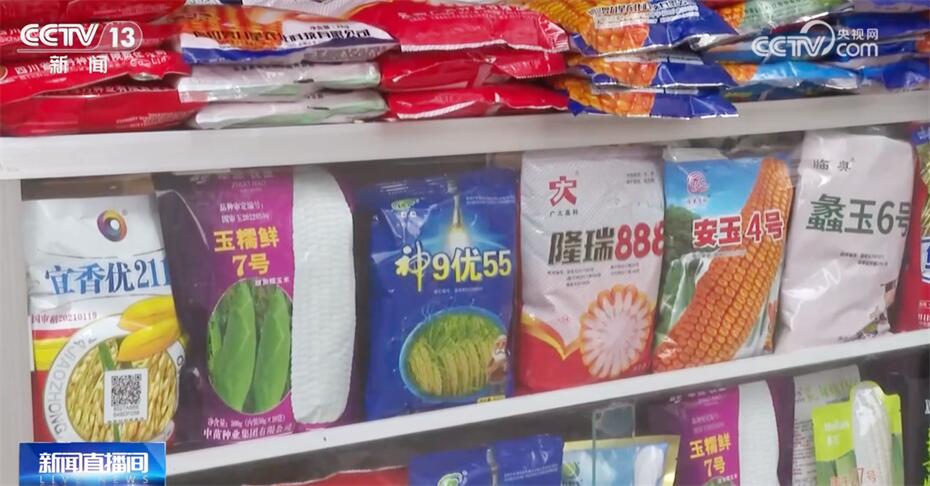
In addition to the introduction of improved varieties by relevant departments, many growers will also go to relevant stores or online to buy agricultural materials. So, how to ensure the quality and authenticity of seeds? The local agricultural technicians also gave everyone advice.
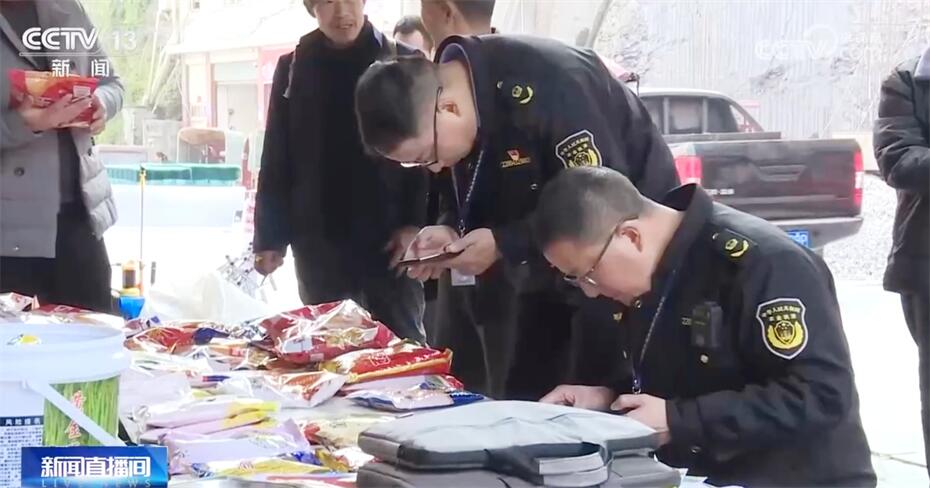
In addition, in order to better promote the preparation for spring ploughing, Pengshui County also carried out the comprehensive agricultural administrative law enforcement activities in 2024, and conducted law enforcement inspections and publicity on agricultural materials markets and planting bases to ensure that growers can buy high-quality agricultural products and escort spring ploughing production.
[Make concerted efforts to contribute to the construction of ecological civilization and protect biodiversity]
Gansu plans to control over 2.85 million mu of desertified land this year.
In mid-March, the temperature in most parts of Gansu Province has been rising one after another, and the Hexi Corridor has been carrying out sand-pressing afforestation along the desert area. This year, Gansu plans to complete the comprehensive management of desertification land of more than 2.85 million mu.
In the past few days, Liangzhou District, Wuwei City, Gansu Province organized 118 units and 6,817 cadres and workers to open ditches and spread grass in the hinterland of Tengger Desert to carry out voluntary sand suppression activities in the spring of 2024. Liangzhou District of Wuwei City is located at the southwest edge of Tengger Desert. Every year, before the spring planting and after the autumn harvest, the local government will organize party member cadres and volunteers to carry out voluntary sand suppression.
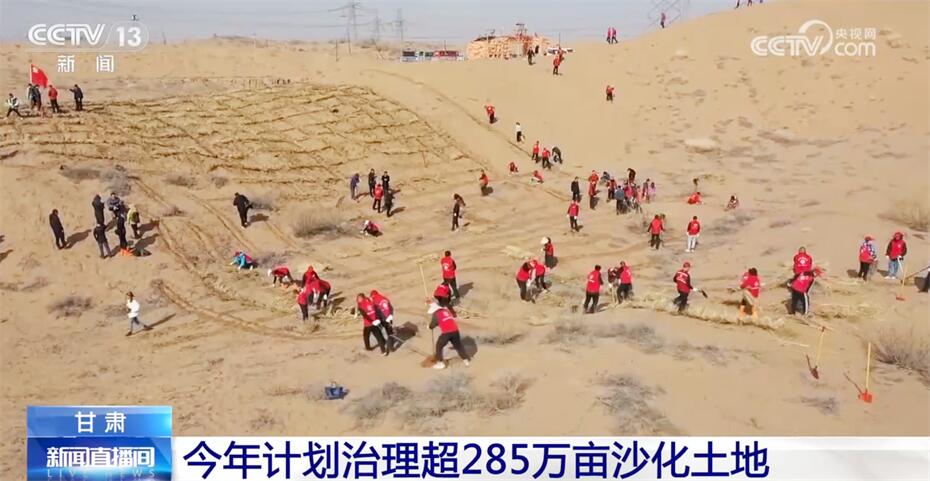
Lan Yinyin, a volunteer who pressed sand, said: "We are all participants and actors in the construction of ecological civilization. I believe that with everyone’s efforts, our home will become more livable and beautiful."
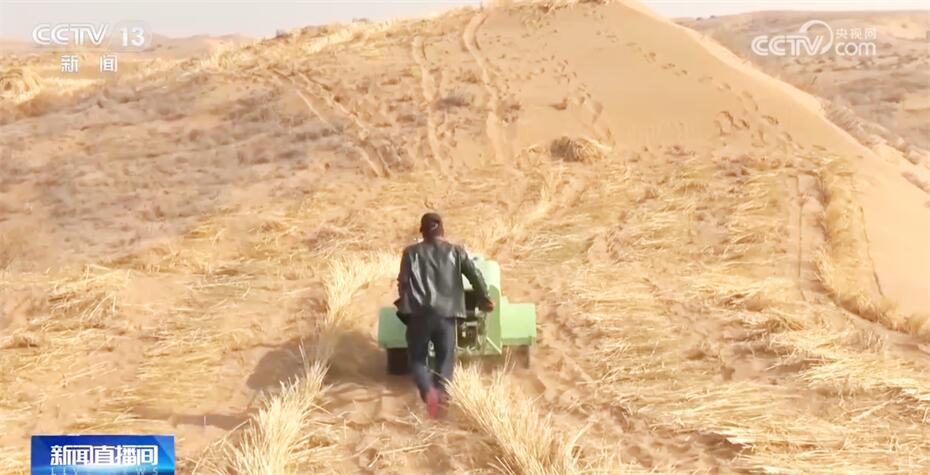
In addition, the local area has also explored the application of hand-held sand barrier machines to promote the new mode of power generation on the board and afforestation under the board. So far, 72,600 mu of photovoltaic sand control has been completed. Gansu province plans to afforest more than 2.6 million mu this year, and complete the comprehensive management of desertification land of more than 2.85 million mu.
Aksai, Gansu: Aerial photography records the seasonal transition of Tibetan wild donkeys.
Recently, the reporter met a group of Tibetan wild donkeys, a national first-class wild protected animal, in Aksai County, Jiuquan City, Gansu Province. Every spring, the wild donkeys make a transition from the flat area of Halten to the mountains. It is understood that Tibetan wild donkeys are Chiroptera animals, and usually live in an alpine desert environment with an altitude of 4,000 to 5,500 meters. In China, Tibetan wild donkeys are mainly distributed in Qinghai, Gansu, Xinjiang, Xizang and Sichuan.
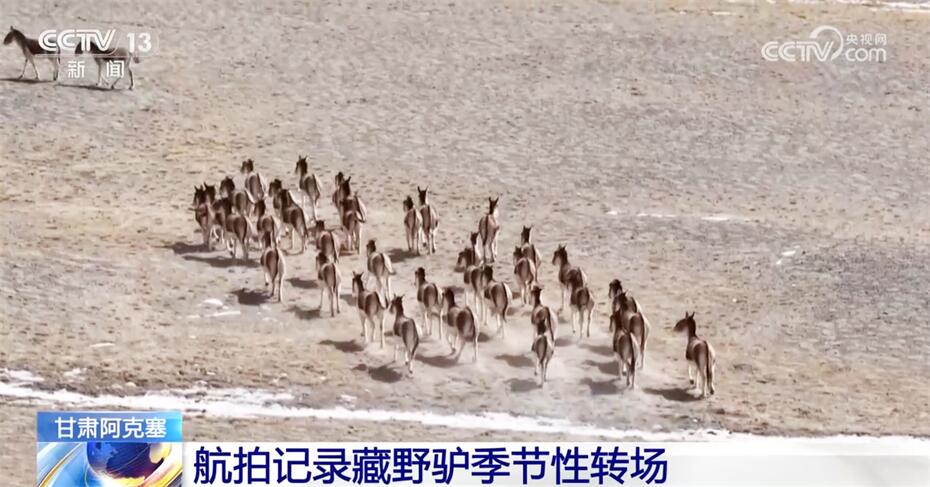
Beijing: White-tailed sea eagles fly to Pinggu to live and feed.
Recently, the white-tailed sea eagle, a national first-class key protected wild animal, flew to large open waters in Pinggu District of Beijing. During this period, the monitors observed nine white-tailed sea eagles. White-tailed sea eagles, also known as white-tailed eagles and sesame eagles, often inhabit open lakes and swamps near water. With the scientific records of white-tailed sea eagles in Pinggu District in recent years, wildlife protectors have made better habitat protection plans to ensure the stability and safety of the ecological environment.
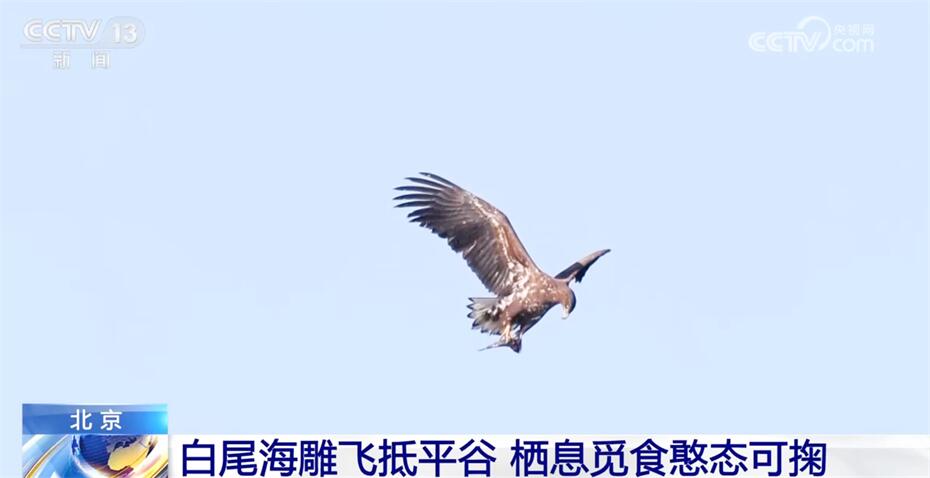
Nie Rong, Xizang: The infrared camera captured the moving picture of the snow leopard.
A few days ago, the reporter learned from the Natural Resources Bureau of Nierong County, Naqu City, Xizang that when collecting the monitoring data of infrared cameras located in Nierong County, Sanjiangyuan National Park (Tangbei area), six snow leopards were found. Up to now, this survey has recorded 24 species of national key protected wild animals.
